ECHILD is a unique research database that joins together existing records from health, education and social care services for all children in England. The ECHILD research team at UCL has been using these linked data to better understand the complex inter-relationships between children’s health and education. Linking data in this way allows us to build a more detailed picture of the challenges that many children face as they grow up. Due to the high quality linkage (99% of pupils born in 2004/5 linked to a hospital record), research using ECHILD helps government and the providers of services to better understand children’s needs, to join up services, and to see which children might not receive the services they need.
What have we found using these data?
Gestational age at birth and school age outcomes
Using the longitudinal data in ECHILD, we found that a third of all children have a record of Special Educational Needs provision by age 11, but that children born even a few weeks too early were more likely to have recorded Special Educational Needs (SEN) provision than those born at 40 weeks of gestation. However, chronic conditions in school-aged children contributed more to the provision of SEN support than preterm birth. These findings suggest that additional support prior to school entry to improve school readiness could be targeted at high-risk groups based on early health indicators shown to influence later outcomes.
We also identified that although chronic conditions and gestational age were predictive of attainment and recorded SEN provision, two-thirds of children with recorded SEN provision were born at full term of gestation and had no chronic condition recorded in hospital records before age 2. More research is needed to identify groups who could benefit from early intervention or preventative strategies to improve school readiness.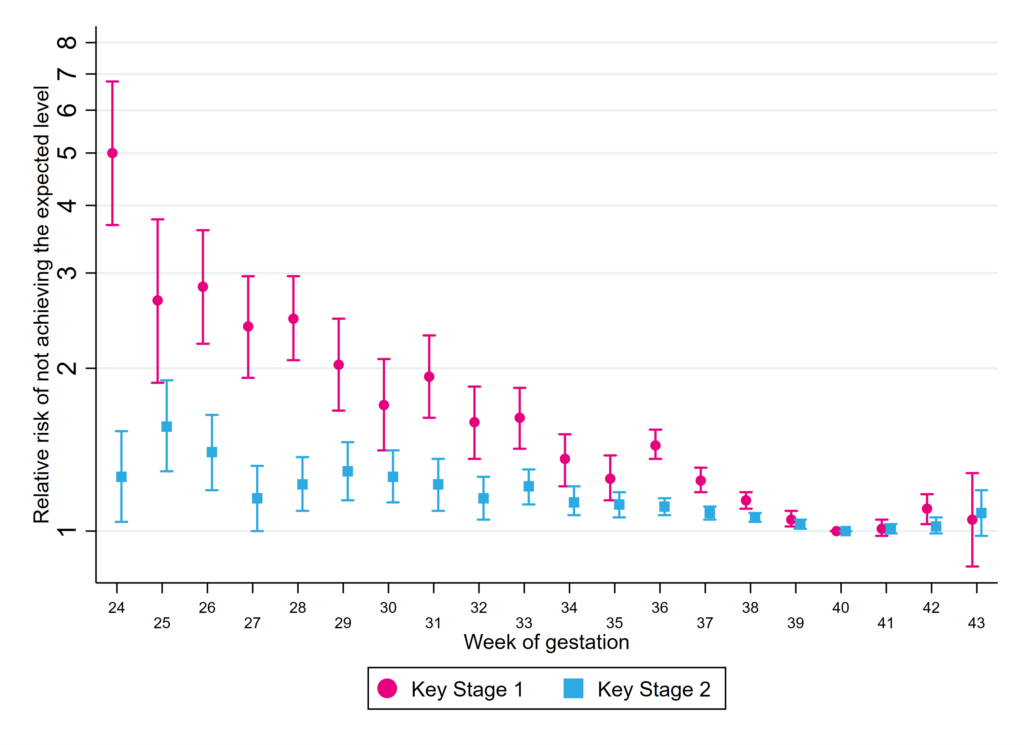
Children born even a few weeks too early were less likely to achieve expected levels of development at Key Stage 1 and 2 compared with those born at full term.
Impact of COVID on hospital use in vulnerable adolescents
Using the linked hospital and education data, we identified that adolescents with recorded SEN provision or those accessing children’s social care services had higher rates of planned hospital care than their peers. During the pandemic, these inequalities widened: the large decreases in planned care for adolescents overall disproportionately affected the 21% of adolescents with recorded SEN provision or children’s social care services, who bore 25% of the decrease in outpatient attendances and 37% of the decrease in planned hospital admissions. We also found that these groups were less likely than their peers to have face-to-face outpatient care during the pandemic.
This work provides empirical evidence to inform policy prioritisation of vulnerable groups of children who have high health needs to ensure equitable provision of care that is accessible and appropriate, including for catch-up of planned care post pandemic. Further research is needed to understand the extent to which delayed or foregone planned hospital care (such as diagnostic assessments or treatments) for young people might influence later outcomes.
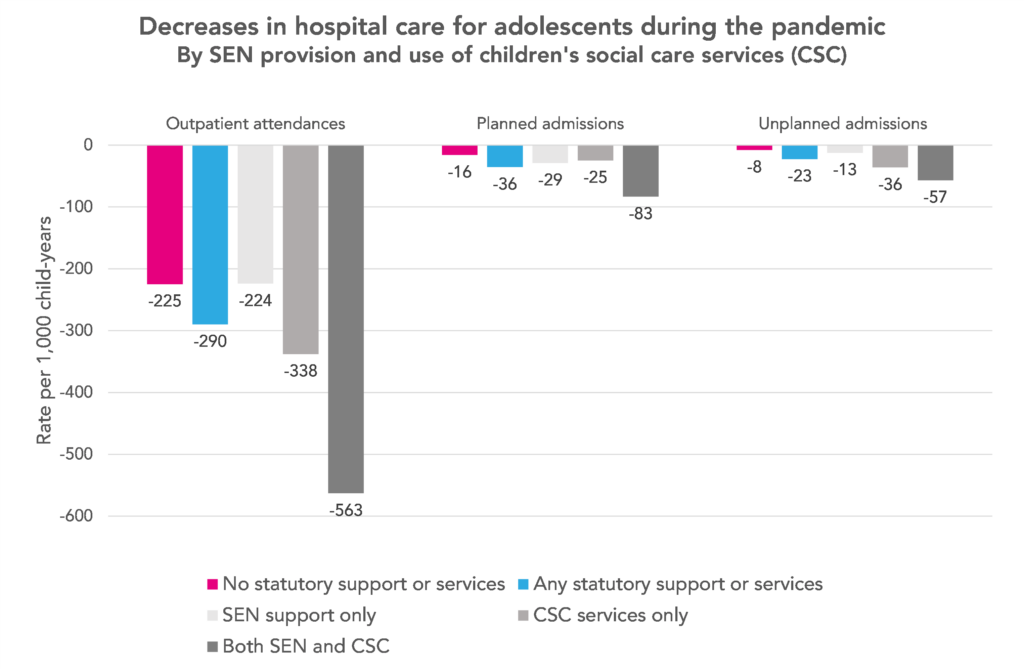
Adolescents with recorded SEN provision or those accessing children’s social care services had larger decreases in planned hospital care during the pandemic than their peers.
Where do we go next?
We’ve got a lot of exciting projects in progress with ECHILD – so watch this space. We’ve also talked a lot with young people, parents and researchers to find out what they think about ECHILD and the kinds of questions they think future research should address. These include:
- What are the characteristics and health outcomes for children placed in social care out of local authority compared with those placed closer to home?
- Do children with serious learning impairing conditions have lower rates of emergency hospital admission if they attend a special school than if they attend a mainstream school?
- Does poor school attainment or frequent absences during adolescence predict risk-taking behaviour, or early pregnancy?
- Are hospital contacts for health problems during pregnancy associated with child health and education outcomes?
- What is the association between young people’s relative academic position within their school and the development of mental health problems, spanning from the end of primary school through to early adulthood?
What is included in the data?
ECHILD currently holds information from two main data sources (described in more detail in our User Guide):
The National Pupil Database (NPD) – including information on attainment, absences, Special Educational Needs and characteristics of pupils who attend schools and colleges in England.
Hospital Episode Statistics (HES) – including information on NHS inpatient hospital admissions, A&E attendances, outpatient appointments, Maternity Services, Community Services, and Mental Health services in England.
We are also in the process of creating a mother-baby link within ECHILD, which will allow us to understand disadvantage and vulnerability in children by linking to maternal and household exposures.
ECHILD is de-identified; researchers cannot identify individuals within the data. It does not include names, addresses, dates of birth, pupil ID or NHS numbers.
How can we access this amazing data resource?
With funding by ADR UK, UCL have obtained approval to share access to ECHILD with accredited UK researchers. ECHILD will be made available for free to researchers based in the UK, via the ONS Secure Research Service. Researchers will need to be approved and submit a successful application to the ONS Research Accreditation Panel to access the data.
Applications to access the database will be open later in 2023; interested researchers are encouraged to contact the ECHILD team on ich.echild@ucl.ac.uk to discuss potential projects and assess suitability.
For updates about ECHILD please visit the website or Twitter @ucl_echild and sign up to the ADR UK mailing list.




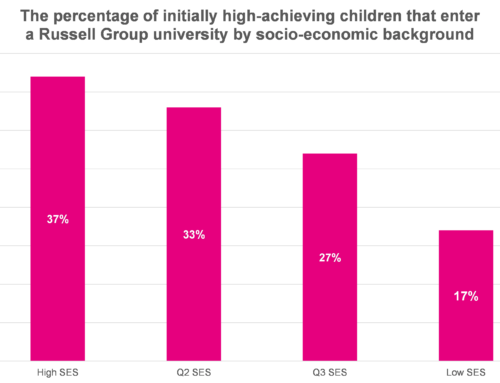
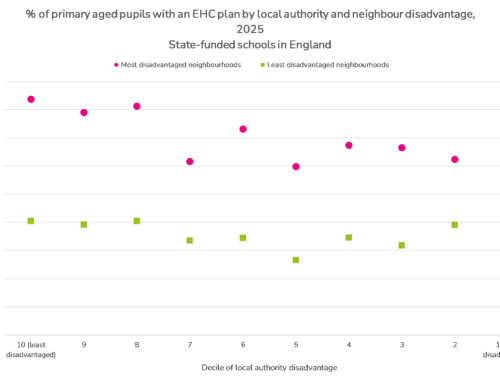

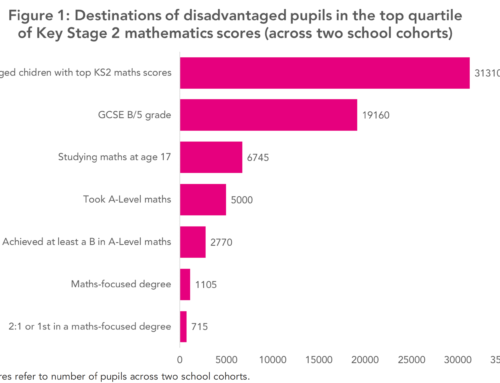

Leave A Comment